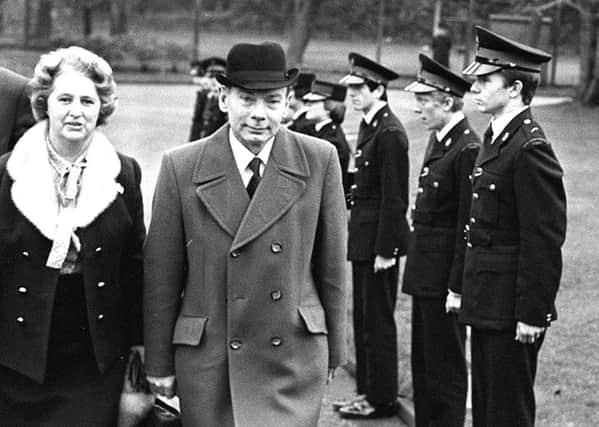Obituary: Kenneth Newman '“ the intellectual who policed Troubles chaos


During the years Kenneth Newman spent in Northern Ireland as an RUC commander, the force had to deal with well over a thousand killings.
Sir Kenneth moved to the Province in 1973 to become deputy chief constable, and in 1976 he took on overall command of the force.
Advertisement
Hide AdAdvertisement
Hide AdIt was a remarkable career move for the Sussex-born Scotland Yard officer; from the start of 1973 up until the end of 1979, the book Lost Lives records that a total of 1,472 people died as a result of the Troubles – including 101 RUC officers or reservists.
According to The Times of London, which revealed his death in an obituary this week, he was born August 15, 1926, the son of John and Florence, and joined the RAF soon after leaving school.
He then signed up to the Palestine Police Force in 1946 while the region was under British mandate, before going on to join the Metropolitan Police.
The Times described him as a “dapper, pipe-smoking intellectual” as opposed to a “hardnosed street policeman”, adding that he studied tactics used against protestors in the 1960s and applied the lessons to the UK capital, resulting in a less confrontational approach than seen in other countries.
Advertisement
Hide AdAdvertisement
Hide AdA book called ‘The Policing of Politics in the Twentieth Century: Historical Perspectives’ quotes him as saying that in 1968 Northern Ireland had been a “chief constable’s dream”, with only 8,000 indictable offences to deal with and a clean-up rate of 60%.
But by the time he arrived it was chaotic and violent, and one of the defining policies of his time at the top of the RUC was “Ulsterisation” – reasserting control of the streets in place of the military, whilst striving to present the violence as criminal in nature, not political.
The book ‘Making Sense of the Troubles’ (by David McKittrick and David McVea) stated that this policy – marked by the replacement of regular troops with an enlarged RUC and UDR – led to a steep drop in British soldier fatalities .
This “helped prevent any build-up of sentiment in Britain for a withdrawal from Northern Ireland”.
Advertisement
Hide AdAdvertisement
Hide AdThe author Peter Taylor described Sir Kenneth as a man who “made no distinction between loyalist and republican terrorists”.
In 1978 allegations began to surface of ill-treatment of detainees at Castlereagh; Sir Kenneth denied that any intentional wrongdoing had been proved.
After leaving the force late the following year, he spent a spell as commandant of the Police Staff College in England, then became commissioner of his old force – the Met – in 1982.
He retired in 1987. He had been knighted nine years previously.
Advertisement
Hide AdAdvertisement
Hide AdIn the latest edition of the Police Service Gazette (which has around 1,600 copies in circulation each month within the PSNI), Brian Rea chairman of the RUC George Cross Foundation said Sir Kenneth “led the force with great distinction during some of the most violent and challenging times in its history and is fondly remembered by all ranks”.
“He provided vision, example and professional focus during a period of massive recruitment and expansion,” he said.
“His leadership, intellect and warmth will ensure that he is long remembered by those who served under his command.”
PSNI deputy chief constable Drew Harris told the News Letter: ”Sir Kenneth was in command of a police service during some of the most difficult days of the ‘Troubles’ and led the organisation with great pride and determination.
Advertisement
Hide AdAdvertisement
Hide Ad“He made an extremely important contribution to policing in Northern Ireland and did his best to move policing forward during some very difficult times.”
Sir Kenneth died on February 4, aged 90. His funeral was held on Thursday, February 23, in Bournemouth.
He is survived by widow Lady Newman, daughter Melanie and son Laurence.